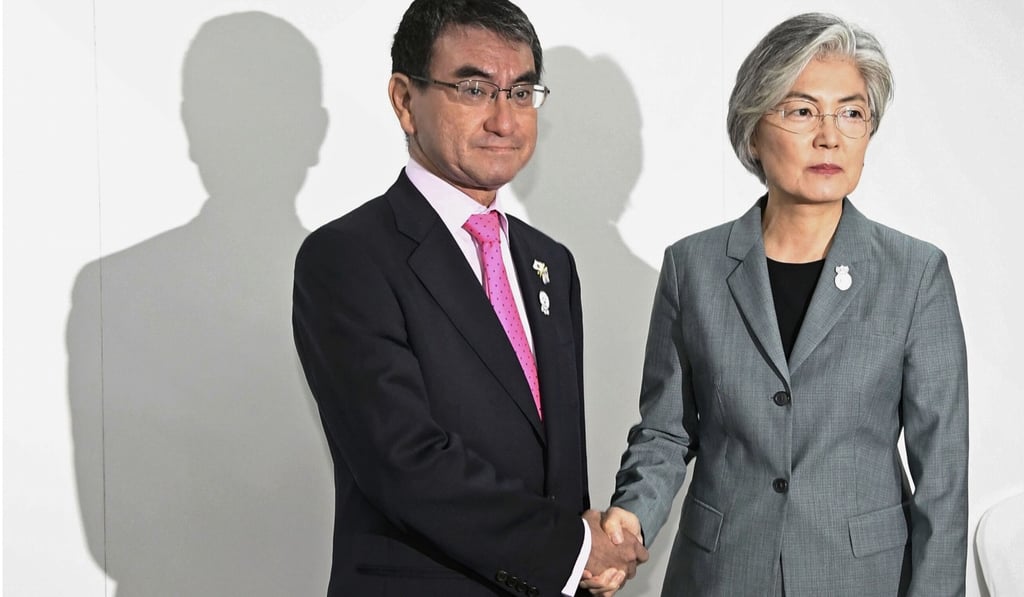China, Japan and South Korea ‘likely to hold summit in December’, despite trade rift
- Arrangements are being made to hold annual meeting in Beijing, Japanese news agency reports, citing diplomatic sources
- It comes amid an escalating dispute between Tokyo and Seoul

Arrangements are being made to hold the summit in December in the Chinese capital, according to Kyodo news agency, citing unnamed diplomatic sources.
China – this year’s chair for the trilateral grouping – proposed a date to hold the summit and South Korea had already agreed to adjust President Moon Jae-in’s schedule so that he could attend, the sources said.
They added that Beijing had hoped to host the summit much earlier – after leaders from the Group of 20 leading economies met in Osaka in late June – but Tokyo had rejected the plan. It said Prime Minister Shinzo Abe’s schedule would be tight because of other events, including a summit of the Group of Seven nations in France in late August.
The three countries’ foreign ministers may meet on the outskirts of Beijing later this month to coordinate the schedule for the summit, to be chaired by Chinese Premier Li Keqiang, and major agenda items, according to the Kyodo report.
